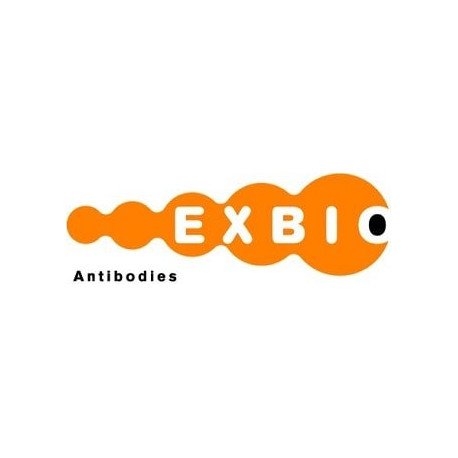Cart 0 Product Products (empty)
No products
To be determined Shipping
0,00 € Total
Prices are tax excluded
Product successfully added to your shopping cart
Quantity
Total
There are 0 items in your cart. There is 1 item in your cart.
Total products (tax excl.)
Total shipping (tax excl.) To be determined
Total (tax excl.)
Data sheet of Hamster Monoclonal to CD3 (mouse)
| Brand | Exbio |
| Product type | Primary antibodies |
| Reactivity | Mouse |
| Clonality | Monoclonal |
More info about Hamster Monoclonal to CD3 (mouse)
| Brand: | Exbio |
| Product no.: | 11-578-C025 |
| Product type: | Primary antibodies |
| Host species: | Hamster |
| Product name: | Hamster Monoclonal to CD3 (mouse) |
| Antigen: | CD3 (mouse) |
| Clonality: | Monoclonal |
| Clone: | 145-2C11 |
| Isotype: | IgG |
| Immunogen: | Mouse BM10-37 cytotoxic T lymphocytes _x000D_ |
| Format: | purified |
| Specificity: | The Armenian hamster monoclonal antibody 145-2C11 reacts with mouse CD3 (epsilon subunit). This antibody is commonly used as a phenotypic marker for mouse T cells._x000D_ |
| Categories: | CD and Related Antigens & MHC (Rodent) |
| Concentration: | 1 mg/ml |
| Storage buffer: | Phosphate buffered saline (PBS) with 15 mM sodium azide, approx. pH 7.4 |
| Storage / stability: | Store at 2-8°C. Do not freeze. Do not use after expiration date stamped on vial label. |
| Background: | CD3 complex is crucial in transducing antigen-recognition signals into the cytoplasm of T cells and in regulating the cell surface expression of the TCR complex. T cell activation through the antigen receptor (TCR) involves the cytoplasmic tails of the CD3 subunits CD3 gamma, CD3 delta, CD3 epsilon and CD3 zeta. These CD3 subunits are structurally related members of the immunoglobulins superfamily encoded by closely linked genes on human chromosome 11. The CD3 components have long cytoplasmic tails that associate with cytoplasmic signal transduction molecules. This association is mediated at least in part by a double tyrosine-based motif present in a single copy in the CD3 subunits. CD3 may play a role in TCR-induced growth arrest, cell survival and proliferation._x000D_ |
| Purity: | > 95% (by SDS-PAGE) |
| Purification: | Purified by protein-A affinity chromatography |
| Product specific references: | *And many other., *Tilley SL, Jaradat M, Stapleton C, Dixon D, Hua X, Erikson CJ, McCaskill JG, Chason KD, Liao G, Jania L, Koller BH, Jetten AM: Retinoid-related orphan receptor gamma controls immunoglobulin production and Th1/Th2 cytokine balance in the adaptive immune response to allergen. J Immunol. 2007 Mar 1;178(5):3208-18._x000D_ , *Han WR, Murray-Segal LJ, Gershenzon A, Zhang JG, Hodder AN, Pietersz GA, Mottram PL: Idarubicin-145-2C11-F(ab')2 promotes peripheral tolerance and reduces chronic vascular disease in mouse cardiac allografts. Transpl Immunol. 1999 Dec;7(4):207-13._x000D_ , *Kearse KP: Calnexin associates with monomeric and oligomeric (disulfide-linked) CD3delta proteins in murine T lymphocytes. J Biol Chem. 1998 Jun 5;273(23):14152-7._x000D_ , *Henrickson M, Reid J, Bellet JS, Sawchuk SS, Hirsch R: Comparison of in vivo efficacy and mechanism of action of antimurine monoclonal_x000D_ antibodies directed against TCR alpha beta (H57-597) and CD3 (145-2C11). Transplantation. 1995 Oct 27;60(8):828-35._x000D_ , *Kinnaert P, Pradier O, Bournonville B, Habrant C, Goldman M, Van Geertruyden N: Role of CD18-dependent and CD18-independent mechanisms in the increased leukocyte adhesiveness and in the variations of circulating white blood cell populations induced by anti-CD3 monoclonal antibodies. Transpl Int. 1996;9(4):386-91._x000D_ , *Jacobs H, Vandeputte D, Tolkamp L, de Vries E, Borst J, Berns A: CD3 components at the surface of pro-T cells can mediate pre-T cell development in vivo. Eur J Immunol. 1994 Apr;24(4):934-9._x000D_ , *Salvadori S, Gansbacher B, Pizzimenti AM, Zier KS: Abnormal signal transduction by T cells of mice with parental tumors is not seen _x000D_ in mice bearing IL-2-secreting tumors. J Immunol. 1994 Dec 1;153(11):5176-82._x000D_ , *Payer E, Elbe A, Stingl G: Circulating CD3+/T cell receptor V gamma 3+ fetal murine thymocytes home to the skin and give rise to proliferating dendritic epidermal T cells. J Immunol. 1991 Apr 15;146(8):2536-43._x000D_ , *Samelson LE, O'Shea JJ, Luong H, Ross P, Urdahl KB, Klausner RD, Bluestone J: T cell antigen receptor phosphorylation induced by an anti-receptor antibody. J Immunol. 1987 Oct 15;139(8):2708-14._x000D_ , *Leo O, Foo M, Sachs DH, Samelson LE, Bluestone JA: Identification of a monoclonal antibody specific for a murine T3 polypeptide. Proc Natl Acad Sci U S A. 1987 Mar;84(5):1374-8._x000D_ , *Vossen AC, Tibbe GJ, Kroos MJ, van de Winkel JG, Benner R, Savelkoul HF: Fc receptor binding of anti-CD3 monoclonal antibodies is not essential for immunosuppression, but triggers cytokine-related side effects. Eur J Immunol. 1995 Jun;25(6):1492-6._x000D_ |
| Related products: | - Hamster Monoclonal to CD80 - Hamster Monoclonal to CD3 zeta (CD247) - Hamster Monoclonal to CD79b (mouse) |
| Shipping condition: | Room temperature |


